CNN
—
Russia is ramping up its efforts to ensure even its youngest citizens fall in line with the official narrative when it comes to the war in Ukraine.
The country’s Ministry of Education this week unveiled new history textbooks with sections about what it calls the “special military operation” in Ukraine, the annexation of Crimea and Western sanctions. Critics say the move is a part of a sustained effort to indoctrinate school children and stifle any independent thinking.
Russian President Vladimir Putin has always maintained that Moscow’s unprovoked aggression against Ukraine is an effort to liberate the country from a “Nazi regime” and Western influence. He even went as far as suggesting there was no such thing as an independent Ukraine, insisting instead that the country has traditionally been part of Russia and that Russians and Ukrainians are “one people.”
The new textbooks endorse this narrative and include maps that show occupied regions in Ukraine as being part of Russia. Photos of the books published by state media show they call Ukraine an “ultranationalist state” where all dissent is persecuted and “everything Russian is declared hostile.” Elsewhere, the authors tell students that when they look for information about Ukraine on the internet, they should remember that there is a “global industry for the production of staged videos and fake photos and videos.”
Russian Education Minister Sergey Kravtsov told state media on Monday the textbooks include sections “about the reasons for the start of the special military operation, the purpose of the special military operation, denazification, demilitarization, [and] the entry of new regions into the Russian Federation.”
Kravtsov also vowed to update the textbooks after the end of the war, “as soon as we win,” according to RIA Novosti.
Katerina Tertytchnaya, an associate professor of comparative politics at University College London, said the new textbooks “have not appeared out of the blue.”
“There’s been an increase in school indoctrination efforts through textbooks, the content of the curriculum and extracurricular activities in Russia from 2014 onwards,” she said, citing research she conducted with several colleagues that showed a rise in pressure on teachers to promote a patriotic narrative of Russian history after Russia’s illegal annexation of Crimea in 2014.
These efforts have only become greater after Moscow launched its full-scale invasion of Ukraine last year. In September, the Ministry of Education launched a new program for all school ages called “Conversations about important things.”
According to a statement by the education ministry, the series of lectures is aimed at fostering “patriotism, love and service for motherland” in children as young as six.
The program includes pre-recorded video addresses from top Russian officials including Foreign Minister Sergey Lavrov and the leader of the Russian Orthodox Church Patriarch Kirill. The topics “Reunification with Crimea,” “Traditional Family Values” and “Russia is the leader in the nuclear industry.”
Some lessons feature Russia’s past accomplishments, such as its space explorations, but many center around its role in the world as “the defender” of other countries. “[These lessons] address students as young as six years old to justify the invasion and create support for the war symbols,” she added.
One piece of material claims “Russia is a country that respects the freedom and sovereignty of other countries” and asks students to give “examples of Russia protecting the sovereignty of other countries.”
Ian Garner, a historian and the author of “Z Generation: Into the Heart of Russia’s Fascist Youth,” said the education changes are part of a much broader transformation of the national culture in Russia into one that is “hyper patriotic, hyper nationalist, and hyper exclusive of minorities and everything that is deemed non-Russian.”
“Everything – history, social sciences, civics, even geography, sport – everything can be squeezed into this narrow box of ‘Russia versus the world,” he said.
Many countries introduce school children to patriotic ideas and civic values. In the US, students recite the pledge of allegiance in schools in most states, while politicians across the country argue about the contents of textbooks and book bans. Schools in France are required to display French and EU flags, alongside the words of the national anthem.
In Russia though, this push is paired with complete erasure of the opportunity to disagree.
“The regime is investing in education reforms that make it impossible to think critically, that stifle criticism, dissent, or critical thinking of any form,” Tertytchnaya said.
Any remnants of a free press have been wiped out since the war started. Western publications and social media sites have been blocked online and dissidents, independent journalists and anyone speaking up against Putin’s regime from inside the country has been silenced.
A law that made it illegal to disseminate “fake” information about the invasion was passed shortly after the war began last year. According to independent human rights monitor OVD-Info, there have been almost 20,000 people detained for protesting against the war in Russia.

“We’ve seen many examples of teachers having to resign (from) their jobs because they tried to deviate from what was prescribed by the authorities, or children themselves being removed from their parents because they expressed views that oppose the position of the government,” Tertytchnaya added.
This complete crackdown on freedom of speech means there isn’t a force in Russia that can counteract school propaganda. While there are numerous underground initiatives – mostly organized by exiled Russians – none has the reach needed to make a difference.
“The state has everything on its side, it has money, it has bodies, it has the stick of being able to jail parents who oppose what’s happening in schools, it has the stick of being able to keep teachers quiet – but these opposition groups have none of that and therefore everything they do is a drop in the water against this great behemoth of conspiracy theories and nationalism,” Garner said.
Since coming to power in 2000, Putin has always emphasized the importance of education and programs for young people, pushing for reforms, according to Tertytchnaya.
“This is a long-term investment policy on the part of the Kremlin, they care about the younger generations and how they see the state and how they interact with it. And it’s not just Russia. We know autocrats invest in education because they want to make sure that students are socialized in a way that aligns with what they want,” she said.
She said that research published in the University of Chicago’s Journal of Political Economy shows that even small changes in the curriculum can lead to major shifts in society. “Research done in China shows that even small textbook modifications do have an effect on how people think and how they engage with the government. Students exposed to new textbooks in China became more skeptical of the free market, for example, in economics, and they were more supportive of the government,” she said.
Garner agreed that the Kremlin is playing the long game by changing the curriculum, promoting nationalistic pop-culture and funding various military youth groups.
“What this is all about, is not just encouraging children away from the opposition and the idea that Russia has no future and that the war is futile, but also driving children towards an embrace of militarism, and driving children towards enthusiasm for signing up with the Russian forces,” he said.
Russia’s efforts to mobilize hundreds of thousands of citizens to fight in Ukraine last September caused chaos and anger, and prompted large numbers of Russians to flee to the border. “The government doesn’t want that to happen again,” Garner said.


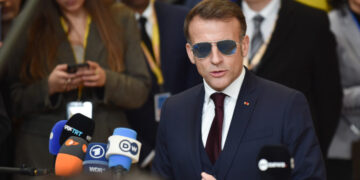
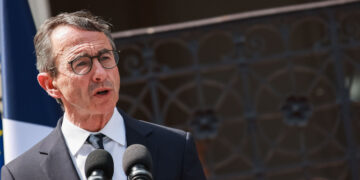
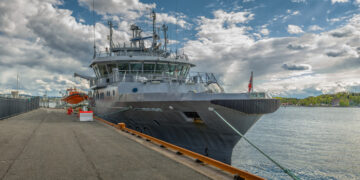











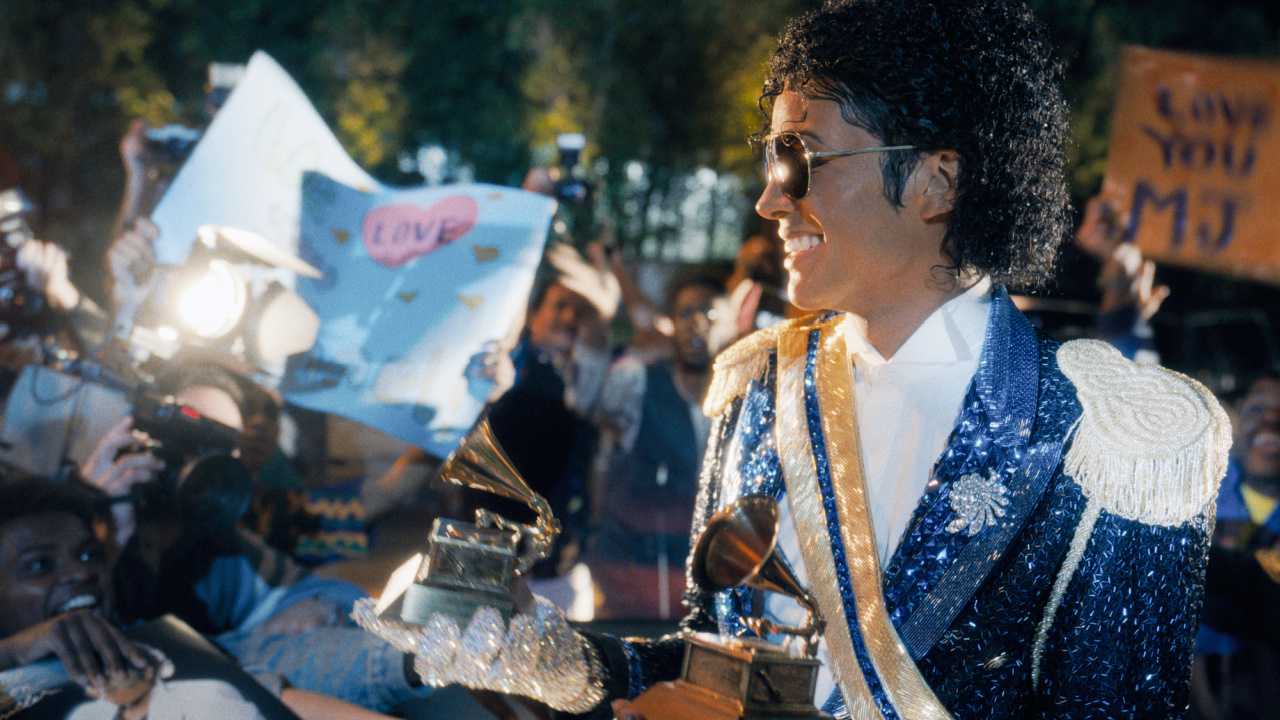
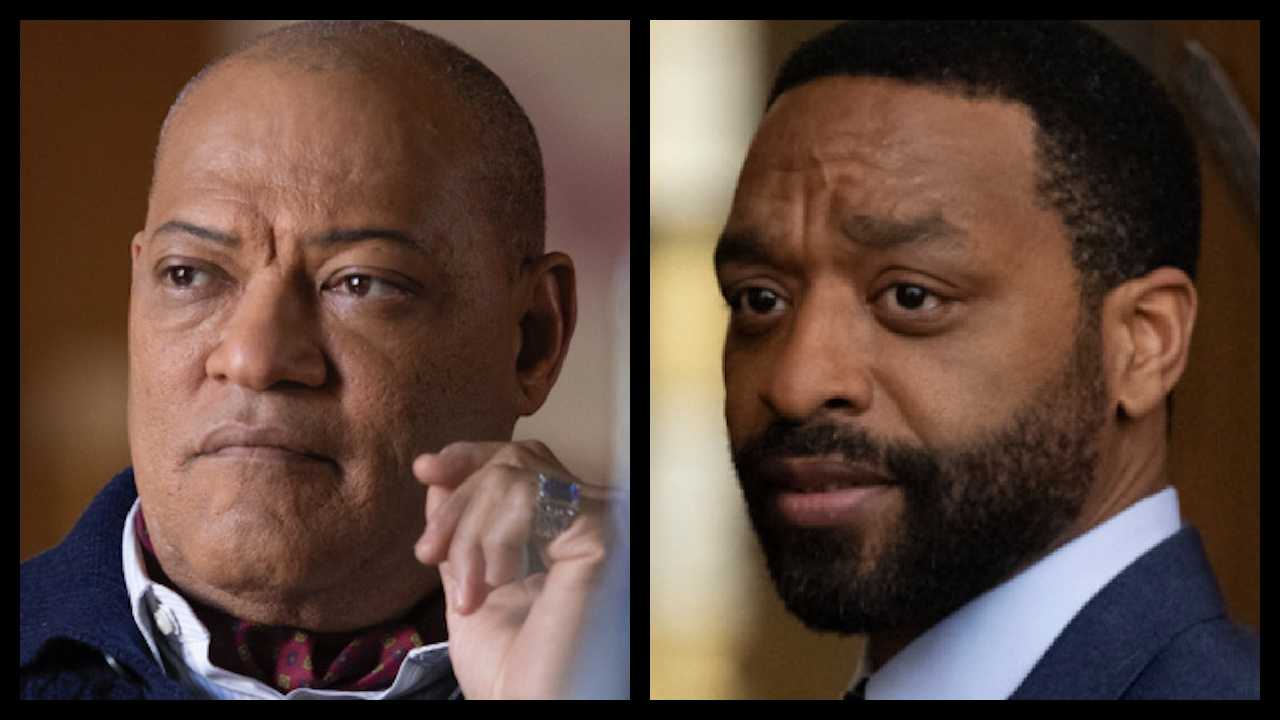
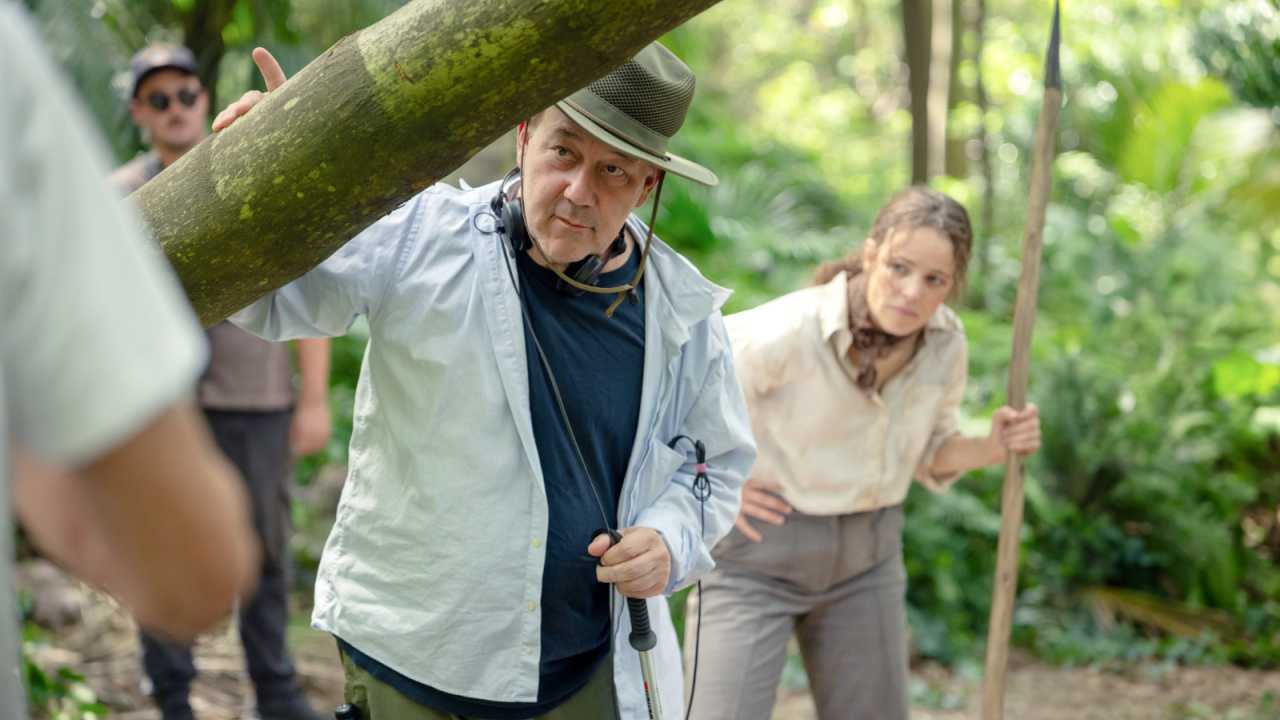
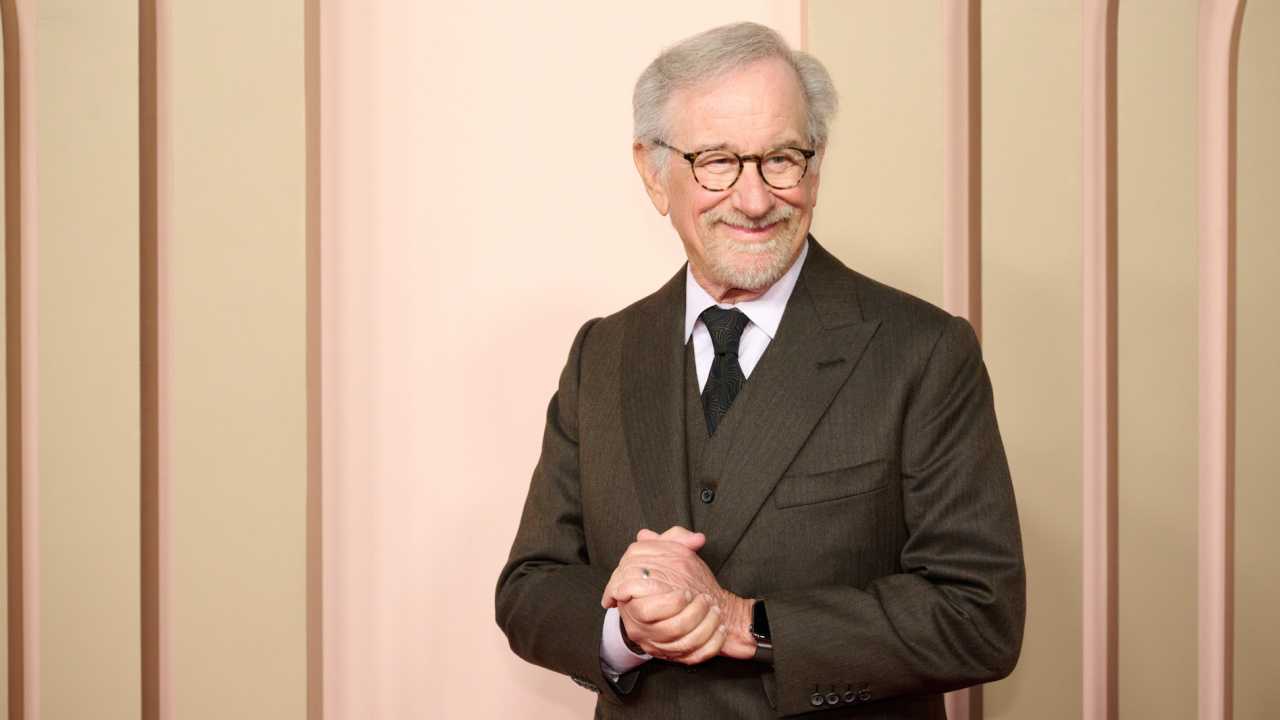
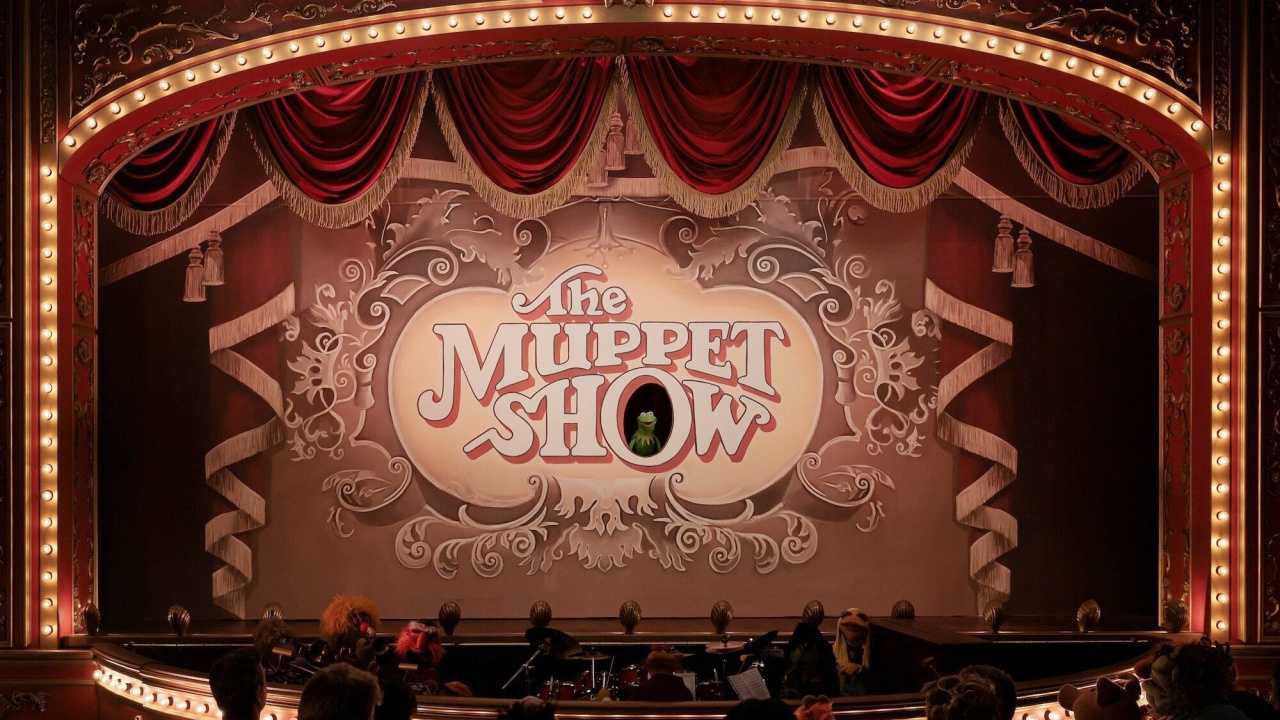




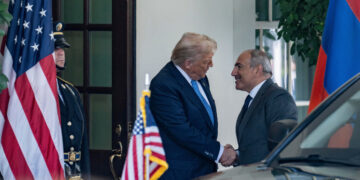
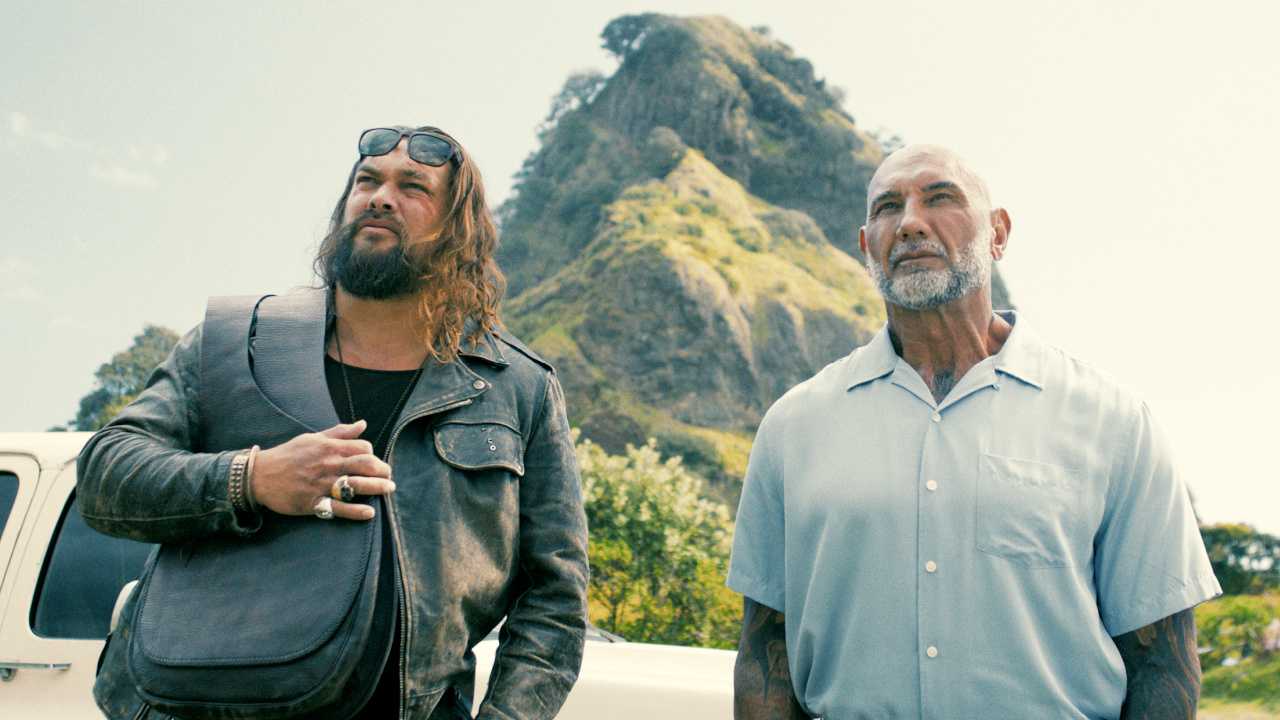
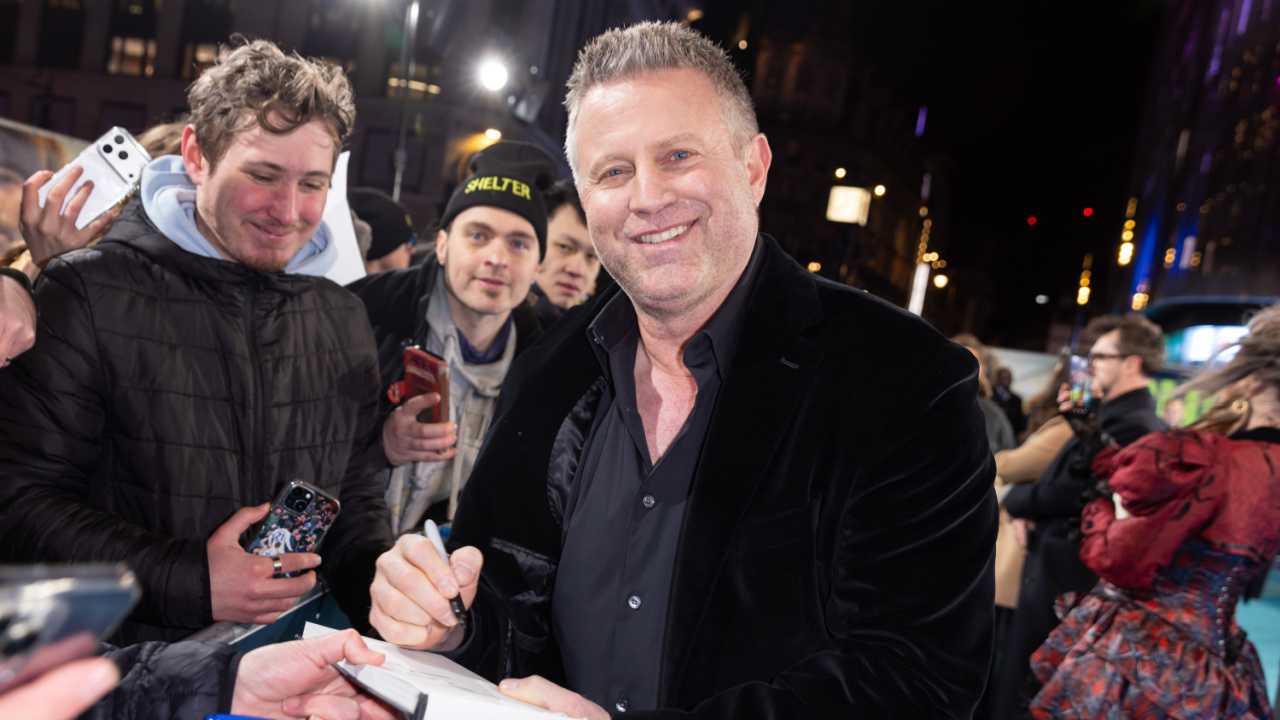
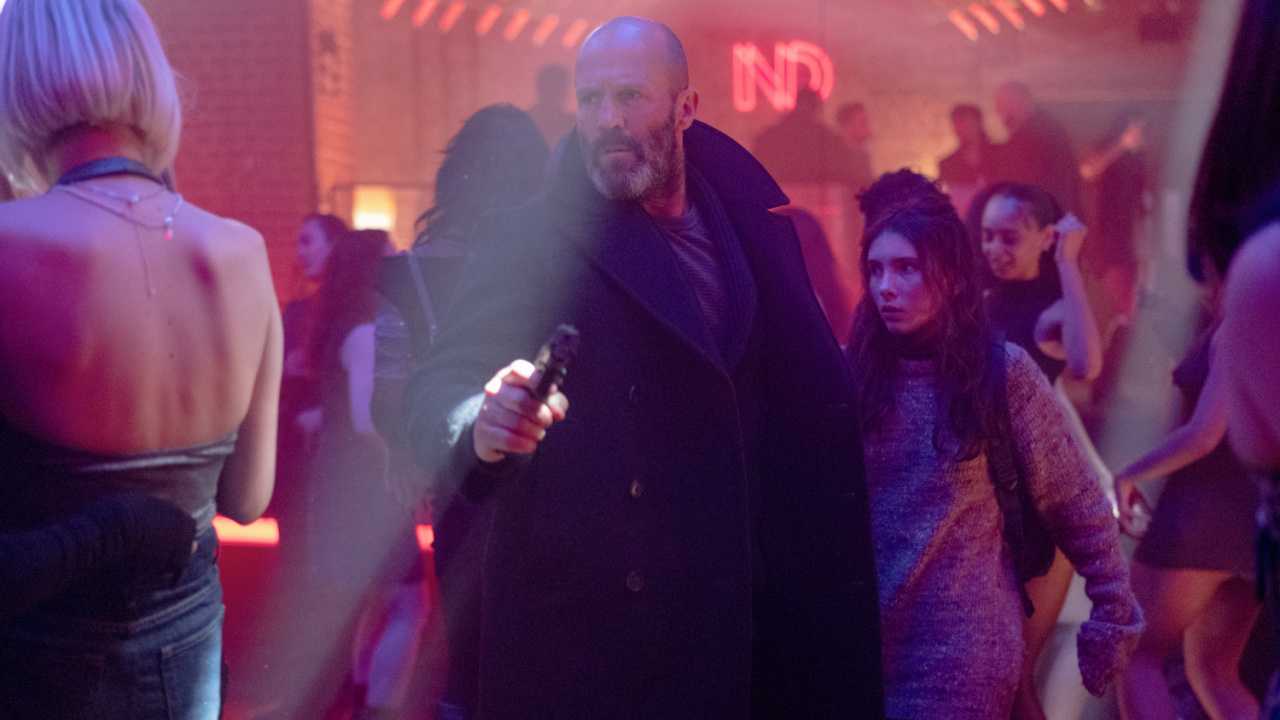
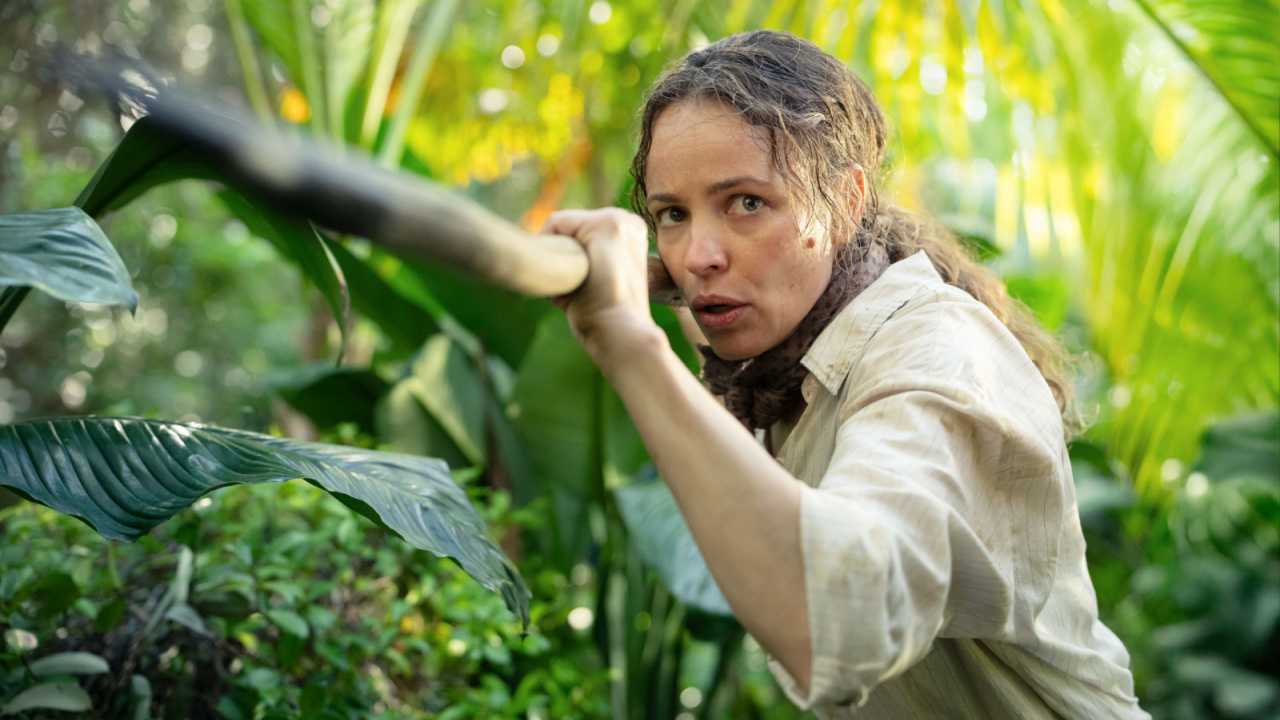
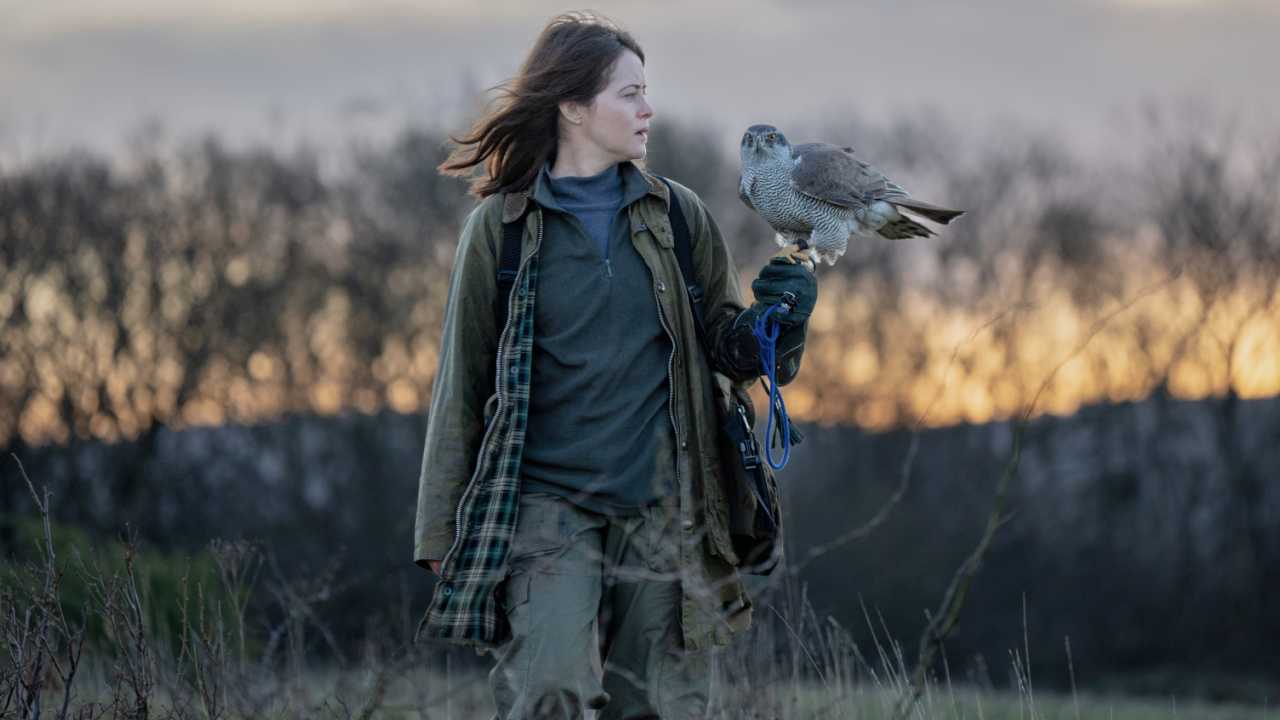
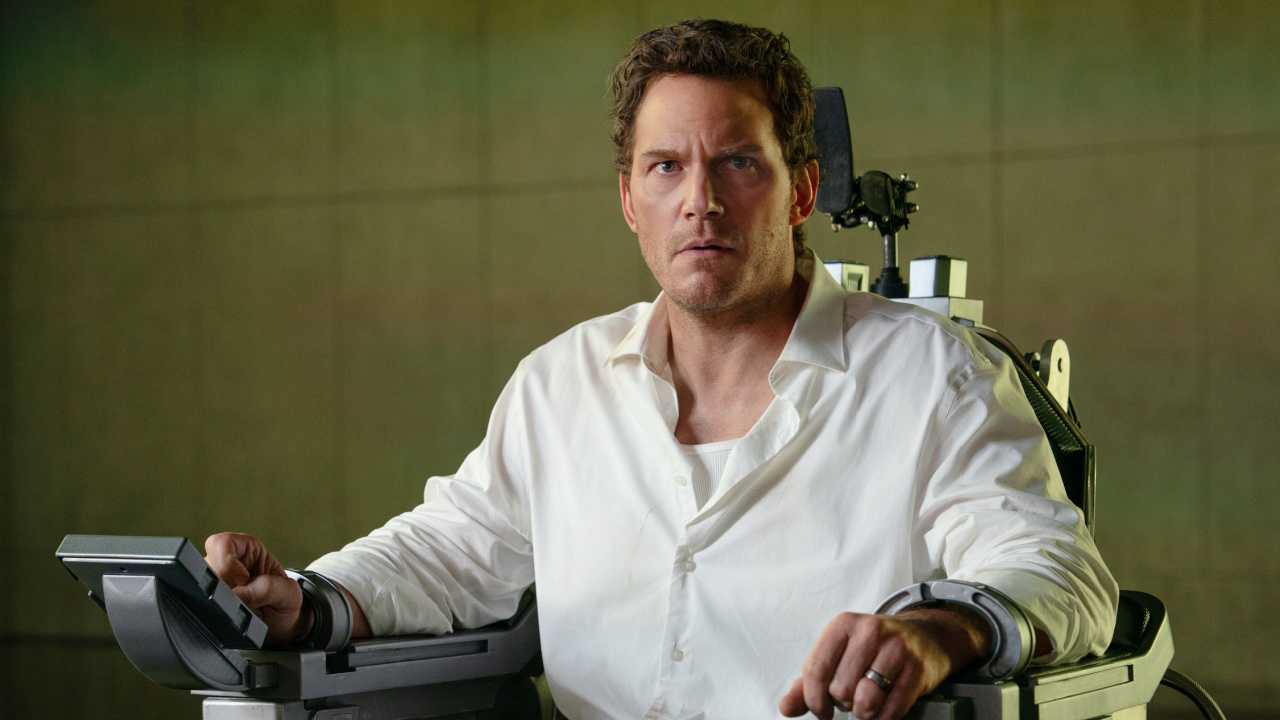

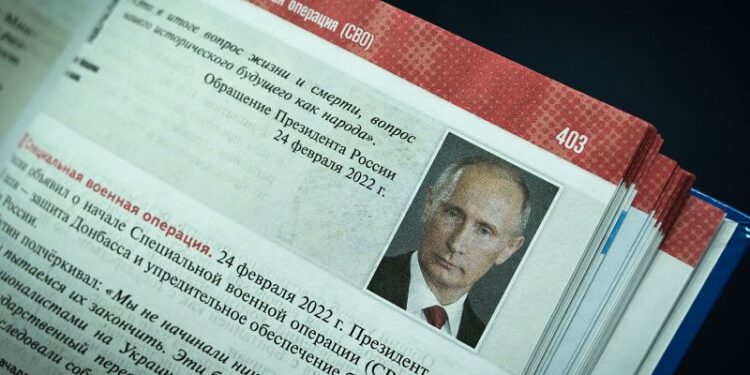

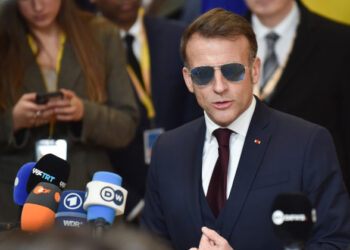
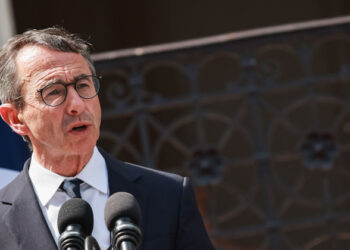
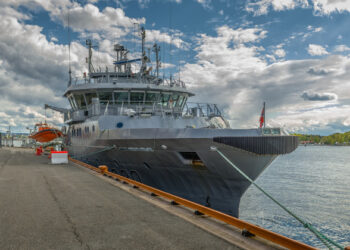
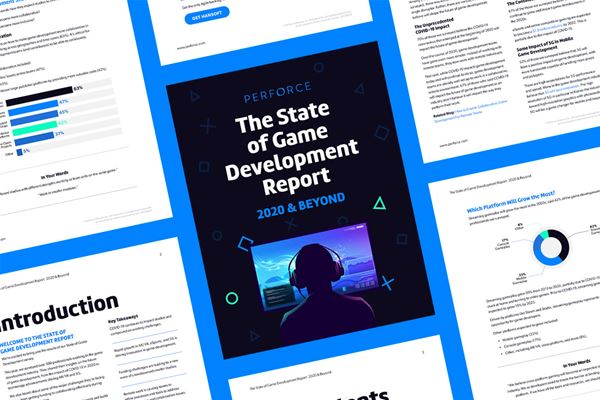



Discussion about this post